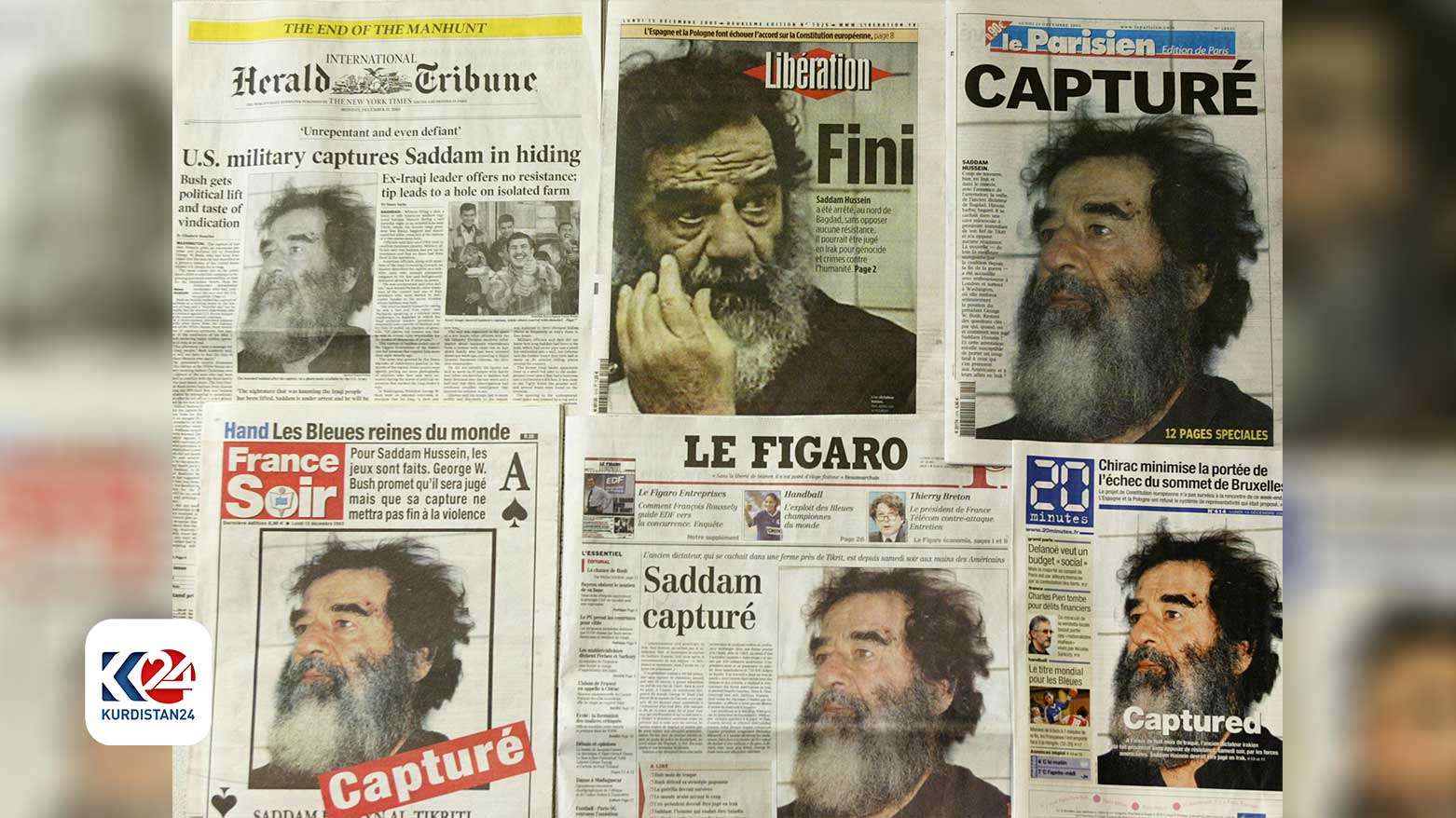Saddam Hussein's Capture: 21 Years Since Historic Turning Point in Iraq
Saddam Hussein's ruthless regime's legacy includes terror campaigns like the Anfal genocide against Kurds, marked by chemical weapon attacks; the Gulf War sanctions; and the Iran-Iraq War.

Dec. 13, 2024
ERBIL (Kurdistan24) - Twenty-one years ago on a day like today, on December 13, 2003, Saddam Hussein, the deposed president of Iraq, was caught by the United States military in the town of Ad-Dawr, Iraq.
The military operation was codenamed “Operation Red Dawn”, which was named after the 1984 American film Red Dawn.
The deposed leader was discovered hiding in a hole near his hometown of Tikrit, nine months following the fall of his ruthless regime.
American forces found Hussein on a farm in the town of Ad-Dawr, southeast of Tikrit, carrying a pistol and $750,000 in cash.
The operation was the result of months of intelligence gathering, planning, and surveillance of his family members and close associates.
The capture caused diverse reactions across Iraq. While many Iraqis rejoiced at the end of Hussein's 24-year authoritarian rule, groups of the former regime’s supporters viewed the manner of his capture as a national disgrace.
Hussein was tried afterward in a special Iraqi tribunal for crimes against humanity committed during his rule, chiefly focusing on the 1982 Dujail massacre where 148 people were killed following an assassination attempt against him.
He was condemned to death on Nov. 5, 2006, and was subsequently hanged on Dec. 30, 2006, during Eid al-Adha, amid controversy over the timing.
His regime left a ruinous legacy of three major conflicts: internal campaigns of terror including the Anfal genocide against the Kurdish people, where chemical weapons were used, killing tens of thousands; the Iran-Iraq War (1980-1988), which claimed hundreds of thousands of lives and crippled Iraq's economy; and the 1991 Gulf War following Kuwait's invasion, which led to international sanctions.
Throughout the 1990s. the international sanctions imposed after the Kuwait invasion severely affected Iraqi society, leading to crises such as currency collapse, widespread poverty, hunger, and the deterioration of basic services including healthcare and education.